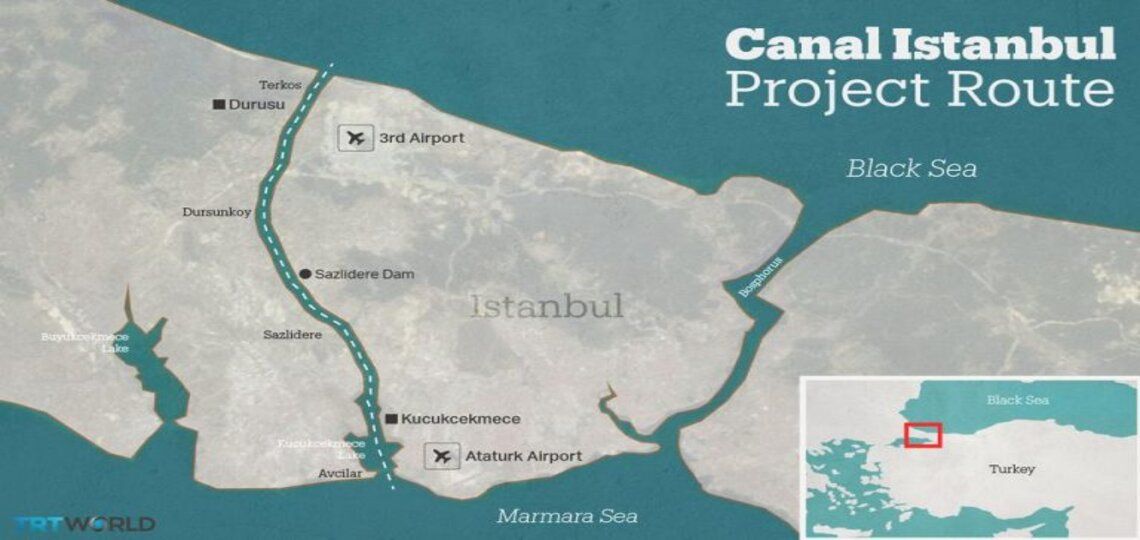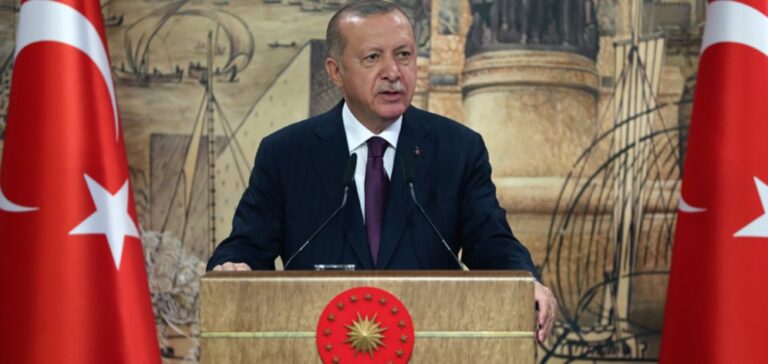Erdogan will soon launch a call for tenders for the Istanbul Canal, estimated at $9.2 billion. On Wednesday April 8, 2021, the Chairman announced that he wanted to start the project as early as this summer. Yet the canal is still the subject of criticism.
Erdogan launches tender for USD$9.2 billion canal
This 45-kilometer canal will link the Black Sea to the Sea of Marmara, and indeed to the Mediterranean. Erdogan wants to relieve congestion in the Bosphorus Strait, to minimize the risk of accidents. The canal would have greater capacity and higher tonnages.
This canal would enable Turkey to become an essential axis of world trade. Its cost is estimated at 9.2 billion USD$. The government approved the project last month.

A channel that draws criticism
The canal is criticized for its cost and environmental impact. Opponents point in particular to the water pollution such a project would cause. Erdogan seems determined, however: Turkey will go ahead with the project “whether we like it or not”.






















